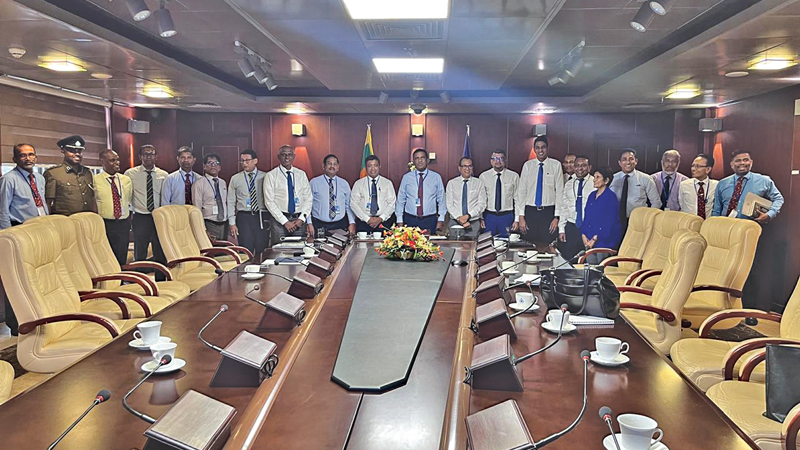The Ceylon Association of Shipping Agents (CASA) has maintained a longstanding and continuous dialogue with the Sri Lanka Customs, engaging on a variety of operational, strategic, and policy matters critical to the shipping and logistics industry.
While day-to-day operational issues are often addressed directly between the Customs and CASA members, unresolved matters are referred to CASA for further discussion. During quarterly meetings between CASA’s Executive Committee and the Customs, strategic and policy-driven issues are prioritised, ensuring the focus remains on broader, long-term improvements rather than day-to-day operational concerns. Although some matters have taken considerable time to resolve, tangible progress has been made, particularly in areas such as automation, digitalisation, and process improvements. These efforts have been instrumental in supporting the logistics sector and aiming to enhance Sri Lanka’s standing in global indices such as the Logistics Performance Index (LPI), where there is a need to significantly improve rankings.
It is noteworthy to mention the structured approach adopted in recent discussions. Previously, meetings often covered 20–30 agenda items, making outcomes difficult to measure. Over the past year, however, both parties agreed to limit discussions to around 10 key issues per meeting, enabling more focused, result-oriented discussions with measurable outcomes.
Major progress areas
Among the key strategic initiatives, several developments deserve recognition:
1. Digitalisation initiatives and ASYHub implementation
The ASYHub platform, funded through grants from the World Customs Organization and the World Trade Organization, is due to go live soon. CASA has played a pivotal role in supporting and advocating for this initiative, conducting testing and training among members.
When operational, the platform will permit seamless transmission and update of critical consignment data up to vessel’s arrival, significantly reducing administrative costs and enhancing the efficiency of commercial transactions. The industry stands to benefit substantially from reduced reliance on manual interventions and penalties for data amendments.
2. Review and streamlining of penalty charges
CASA has actively engaged with Customs to promote a transparent and fair penalty system. The objective is to distinguish between genuine errors, such as minor clerical mistakes, and intentional infractions that impact revenue. A structured, transparent framework for penalties will prevent arbitrary charges and further facilitate trade.
3. Setting up of priority SOPs
In an effort to create greater transparency, CASA has submitted draft SOPs to Customs, covering key activities with the intention of jointly finalising comprehensive, mutually agreed procedures. This medium-term initiative aims to enhance predictability, reduce ambiguities and disputes, and support seamless business operations.
Immediate operational improvements
In addition to strategic initiatives, several operational improvements have already been successfully implemented:
• Electronic submission of manifests for car carriers (RO-RO vessels)
The Customs has discontinued the need for hard copies of inbound and transhipment manifests for car carriers. Manifests are now accepted via scanned email submissions, significantly improving efficiency.
• Automation of Customs charges
The previous manual process for vessel charges, which involved multiple physical visits and document submissions, has now been streamlined into an online system. This shift has improved transparency, reduced administrative burdens, and saved valuable time and resources for shipping agents.
• Electronic granting of vessel sufferance
The approval process for vessel berthing, historically reliant on physical paperwork, has now moved to an email-based system.
This change, facilitated through collaborative discussions and referencing the Electronic Transactions Act, reflects a major modernisation of Customs procedures and a positive shift toward paperless operations.
Acknowledging progress
While some long-standing issues, such as the management of detained containers, remain under discussion, it is important to acknowledge and appreciate the progress made.
The continuous collaboration between CASA and the Customs has already resulted in notable improvements that directly enhance trade facilitation, operational efficiency, and the competitiveness of the logistics sector.






